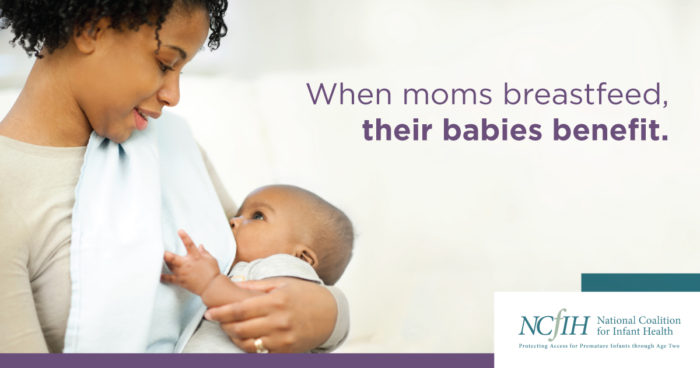Why Breastfeeding Moms Need More than Awareness
August 21, 2018
Breast is best, the familiar adage reminds parents of newborns. And this August, Breastfeeding Awareness Month gives families, health care providers and policymakers a chance to reflect on the benefits that breastfeeding offers babies and mothers alike. It also begs the questions: How do hospitals, health plans and regulatory policies encourage breastfeeding? And where they could improve?

Calling breastfeeding “the normative standard,” the American Academy of Pediatrics explains that human milk can protect infants from infections, sepsis, diabetes and even childhood obesity. Mothers also benefit, as breastfeeding is associated with a lower risk of breast and ovarian cancer.
But do policies encourage mothers and infants to reap the benefits of breastfeeding? Not necessarily.
Just consider premature infants. Human milk can be particularly beneficial to these babies because it protects against NEC, or necrotizing enterocolitis. The deadly disease can damage an infant’s intestinal tissue, causing a distended abdomen, respiratory failure and septic shock. Mothers of premature infants, however, often struggle to produce enough breastmilk for their babies – making it impossible for them to protect the infants from NEC on their own.
Donor human milk and human milk fortifiers can help, but not all hospitals have donor milk available. And health plans may not cover the cost of these items, making them inaccessible to many families.
Policy also falls short in informing breastfeeding moms about the value of certain nutritional choices. In the 2015 Dietary Guidelines for Americans, the Department of Agriculture and the Department of Health and Human Services advised pregnant and breastfeeding mothers to eat at least two to three servings of seafood each week. As explained in a 2017 “Fast Facts” from the National Coalition for Infant Health, seafood can boost breastfed babies’ IQ and development. and it is associated with reaching developmental milestones earlier. Fish consumption provides iron, Omega-3s and vitamin D to both breastfeeding mothers and their babies.
In the departments’ 2017 update, however, the benefits of fish consumption for breastfeeding mothers were conveyed with less clarity. Using the categories “best,” “good” and “avoid,” the guidance classified fish based on mercury content. The approach could perpetuate confusion about the net effects of fish consumption that sometimes lead breastfeeding and pregnant women to avoid fish – sacrificing nutritional benefits for both themselves and their babies.
This year’s Breastfeeding Awareness Month has spurred everything from potluck gatherings to local proclamations. But perhaps what mothers could also use this month – and every month – are clear policies that make breastfeeding and its related benefits accessible to more infants.
Tags: InfantCategorized in: Blog

